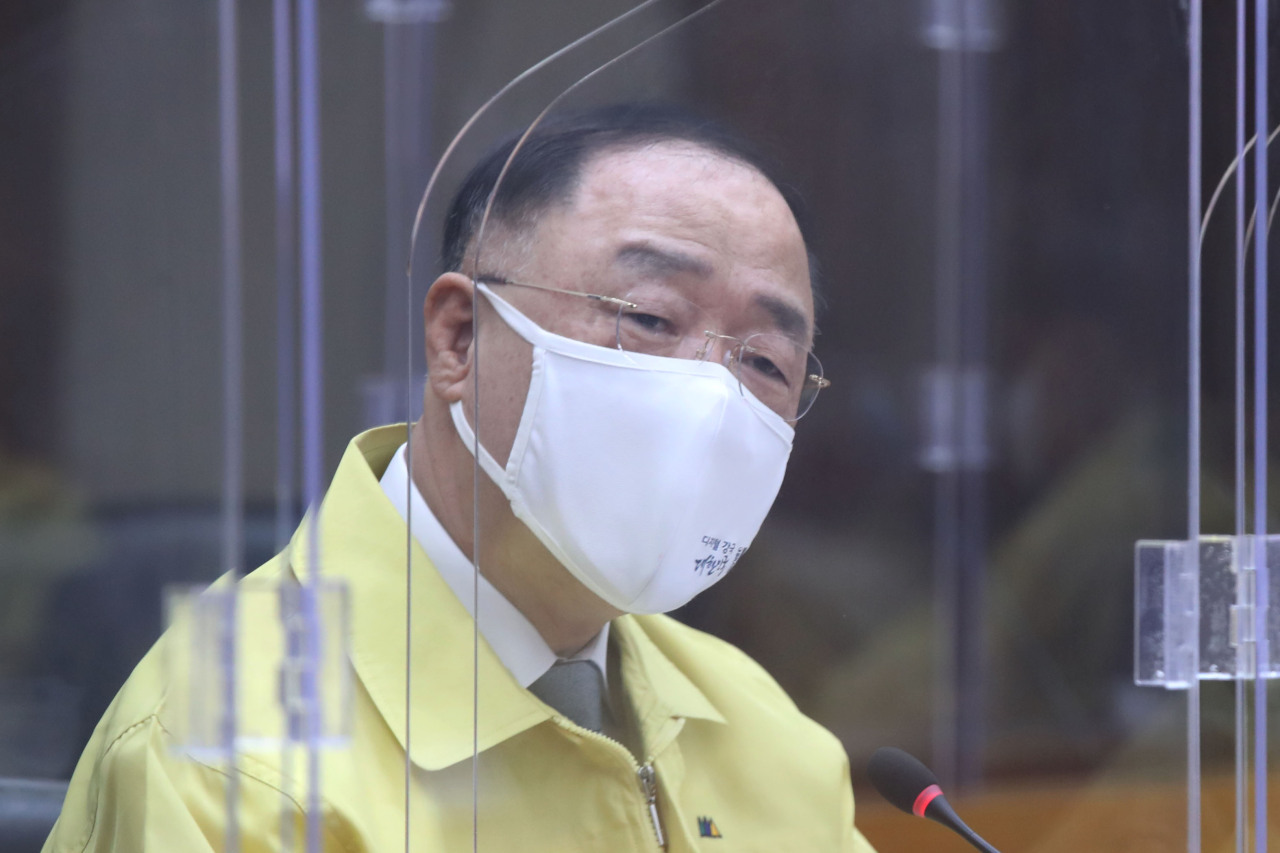S. Korea to tighten mortgage rules to rein in household debt
40-year mortgage loans to be introduced in H2 for young house buyers
By Park Han-naPublished : April 29, 2021 - 16:36

South Korea unveiled Thursday a set of measures aimed at mitigating risks from the growing household debt burden and bringing the debt growth rate down to levels comparable to before the coronavirus hit the country.
“In the course of responding to the COVID-19 crisis last year, the increase in household debt has inevitably expanded. We will manage to revert the household debt growth rate to pre-coronavirus levels,” Finance Minister Hong Nam-ki said while presiding over an emergency economic council meeting.
Asia’s fourth-largest economy saw a rapid rise in household debt last year, largely due to increased borrowing to make ends meet in the aftermath of the COVID-19 pandemic and to fund stock investments amid record-low interest rates.
Household debt, which grew more and faster here than in other major economies, has been cited as a major potential risk for the country’s financial system.
At the end of last year, outstanding debt held by Korean households reached 1,726.1 trillion won ($1.52 trillion), up 7.9 percent from a year ago. In 2019, household debt grew 4.1 percent.
“The government plans to lower the rate to a range of 5-6 percent this year and to the 4 percent level in 2022,” Hong said.
The new regulations announced Thursday centered on implementing stricter screening rules for mortgage loans while blocking lending practices that could lead to real estate speculation.
According to the Financial Services Commission, the country’s top regulator, it will expand the proportion of borrowers subject to the 40 percent rule for the debt service ratio, a measurement of the cash flow available to pay current debt obligations. This will be done in phases, with the rule applying by July 2023 to all borrowers whose total loans exceed 100 million won.
Currently, the requirement applies only to those who seek to borrow money to purchase homes worth more than 900 million won in speculative areas or high-income earners with annual salaries of more than 80 million won applying for credit loans in excess of 100 million won.
In July this year, as the first phase of the three-phase plan, the 40 percent debt service ratio rule will apply for the purchase of homes valued at 600 million won or more.
The scope of properties subject to lending restrictions, including debt service ratio and loan-to-value ratio restrictions, will be widened to include land, shopping arcades and officetels -- multipurpose buildings with both residential and commercial units.
The aim is to strengthen lending standards and prevent lending from fueling real estate speculation. Calls for such measures grew after employees of the state-run Korea Land and Housing were found to have taken out loans to buy farmland in districts southwest of Seoul ahead of their designation by the government as candidate sites for development projects.
For young adults struggling to get mortgages to buy homes due to their current income, the government will provide guidelines for banks that factor in future income that the borrowers can be expected to generate.
Forty-year mortgage loans will be introduced in the second half of this year for the first time to allow young buyers aged below 39 years and newlyweds to pay relatively low rates over a longer term.
Banks will be obligated to accumulate additional capital in relation to the proportion of household loans to total loans extended.
If the obligation is not fulfilled, the financial authorities will impose restrictions on the bank’s dividends, treasury stock purchases and performance-linked bonuses, the FSC said.
By Park Han-na (hnpark@heraldcorp.com)




















![[Today’s K-pop] BTS pop-up event to come to Seoul](http://res.heraldm.com/phpwas/restmb_idxmake.php?idx=642&simg=/content/image/2024/04/17/20240417050734_0.jpg&u=)